Women in theatre are warned not to have children because motherhood will derail their career. If they choose to become mothers, they are warned to keep pregnancies secret from potential employers. Once those children arrive, parents are discouraged from asking for what they need, despite the prohibitively high cost of childcare and intense rehearsal and production schedules, especially considering artists generally get paid low rates. But there’s a movement happening in theatre communities all over: parent artists are bringing these particular challenges they face into the light and are advocating for change.
I’m the founder of the advocacy group Parents in Chicago Theatre. In a recent survey of parent artists, we found that 91 percent of respondents had turned down theatre work because of scheduling or the cost of childcare. On top of that, 70 percent said their income had stagnated or gone down since becoming a parent, and around 80 percent felt their career trajectory had been interrupted.
One Chicago theatre has been quietly practicing radical inclusion of mothers for the last decade: Rivendell Theatre Ensemble, whose mission is to help advance the lives of women through theatre by providing a home for them to develop their work. Ten years ago, artistic director Tara Mallen and her husband, ensemble member Keith Kupferer, were forced to start thinking about how to work with parent artists when they had a baby. Thanks to words of encouragement from fellow theatre artists with children, Mallen created a support group with a number of colleagues who were struggling with the same challenges and felt emboldened to create an environment where parents could bring their children to work.
At Rivendell, there is a tub of toys in the rehearsal space and a tent in the dressing room where children can spend time, especially during shows that are not kid-appropriate. Mallen recognizes the importance of family dinners and kids’ bedtimes, so schedules are flexible. Daytime rehearsals, five-day workweeks with two consecutive days off (including one on a weekend), and no ten out of twelves (a limited number of technical rehearsals specified in an Equity contract, where actors can rehearse ten hours in a twelve-hour period) are typical for a Rivendell process. “We cannot be a female-centric organization and not encourage women to continue working on their craft and bring their children along,” Mallen says. There have been many more pregnancies, births, and adoptions among Rivendell creatives over the last ten years, and Mallen’s guiding principle has been, “Come on in. The door’s open. We will celebrate your child and we want to be part of your child’s creative community.”

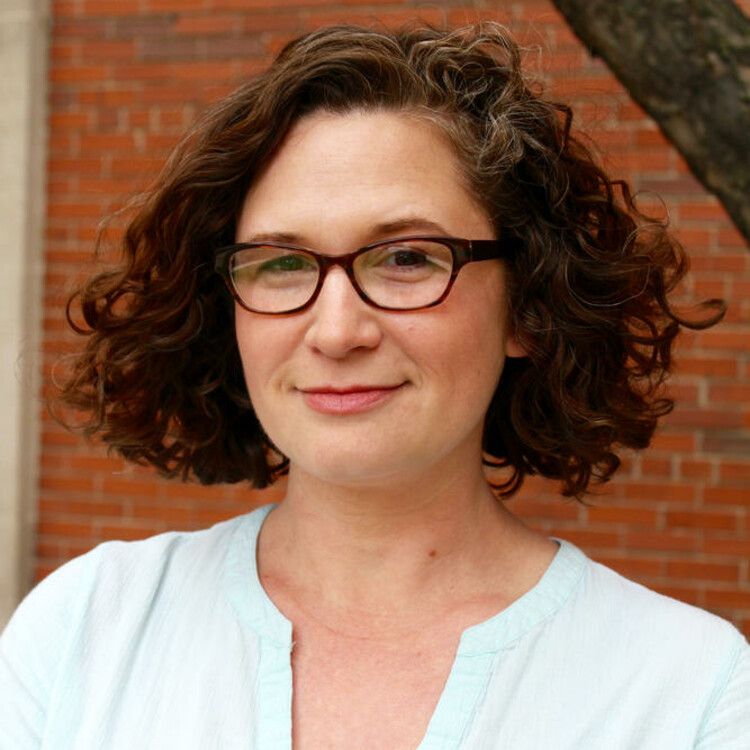
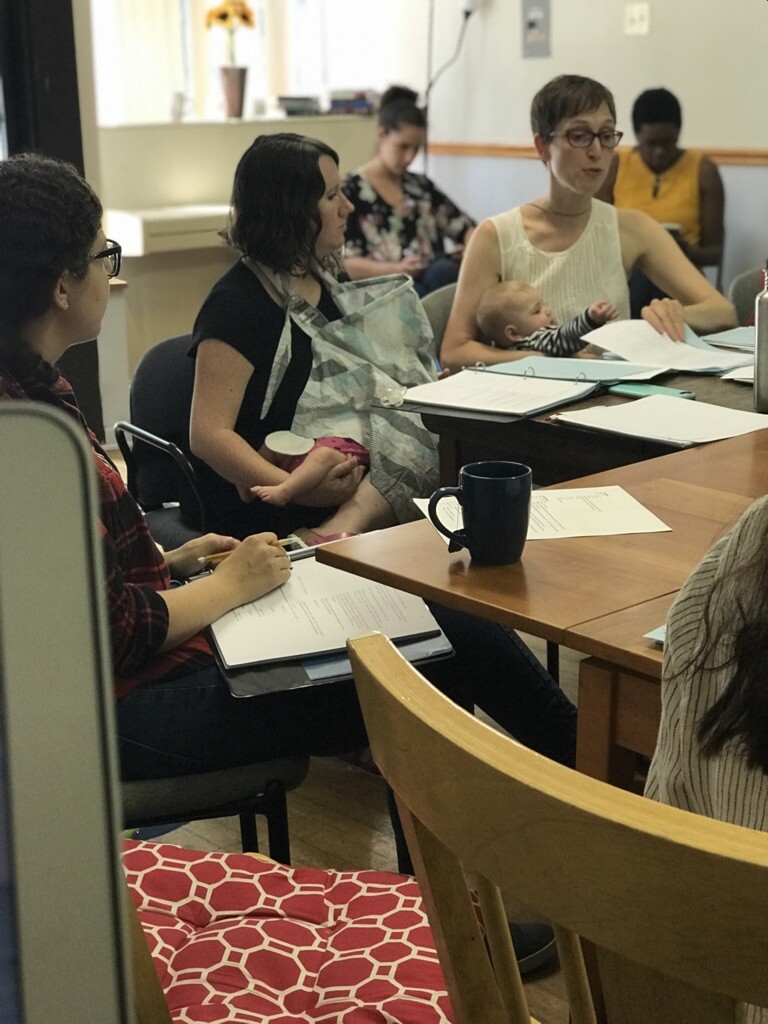
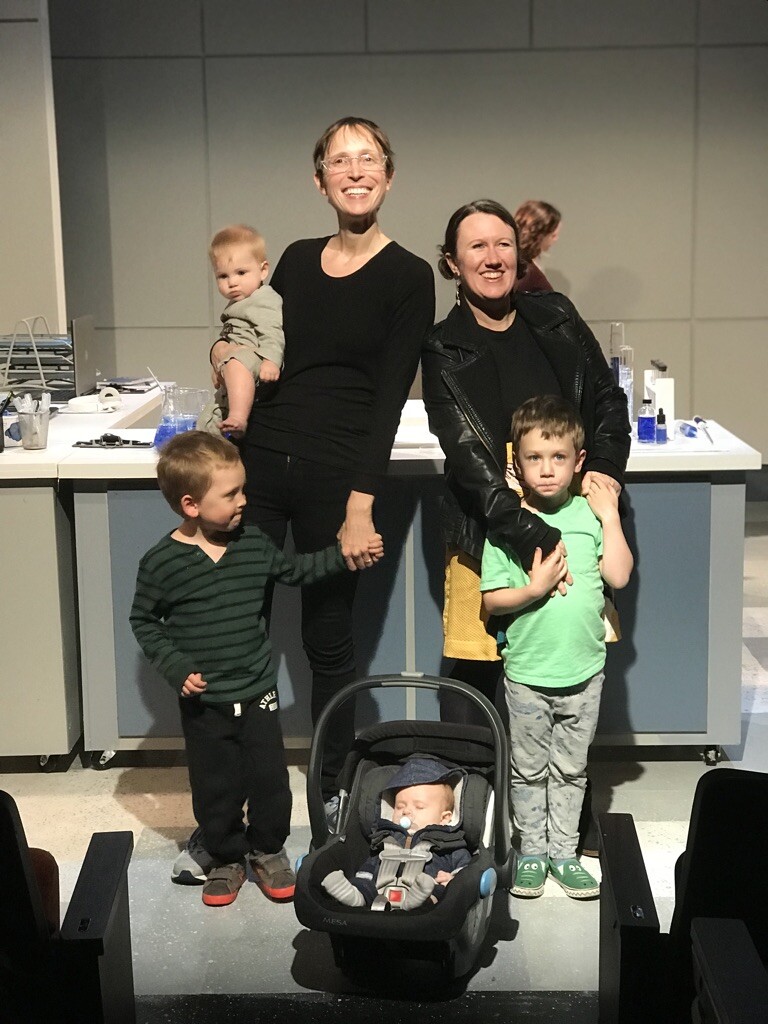
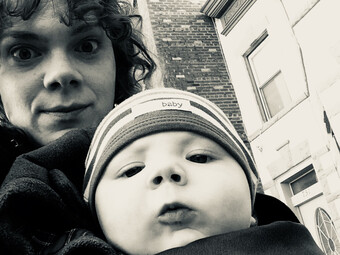

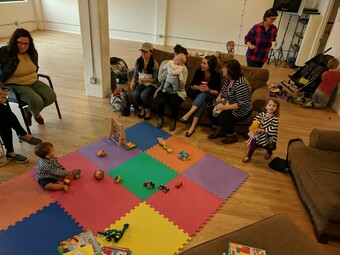



Comments
The article is just the start of the conversation—we want to know what you think about this subject, too! HowlRound is a space for knowledge-sharing, and we welcome spirited, thoughtful, and on-topic dialogue. Find our full comments policy here
I read this entire article and only feel more excluded. You see 3 years ago my son was born it’s been just me and him since that time. I made my living in the theatre and music world. But having my son and only having childcare during the day severely limited my choices. I am already not an immediate option for most shows ( not tall/ black/looks significantly young for my age) but with my son taking work has been a challenge. While I want to believe this article was written for parents who struggle with childcare it seems that this article has completely forgotten men like me. I say this because at every point in this article where the word parent should have been was the word mother. My son doesn’t have the luxury of having a mother at the present. I have watched women bring their child/children to rehearsals. I’ve witnessed theatres hiring out babysitters for the full run of rehearsals for women in casts I have been apart of. When I ask these same theatres to make any changes due to me being a father they either have outright denied or told me “such and such is a special case” . The only difference is Sex of parent. One time I was told my son was too young for the babysitter that had been hired, then watched as women brought infants while I was struggling to prepare childcare for my child. I have left theatre because of this. It’s unfortunate. Only one company has worked with me ( a non equity house) in my city, but the pay is so low as a single parent it becomes unsustainable. Acting is a privilege and right now while y’all are over having a great time inviting mothers in your forgetting these babies were made by 2 people, and women are not alone in their struggles as parents. Since becoming a single father, I have found an entire community of single fathers across all industries facing the same discrimination/ unfair treatment because they have chosen to take care/responsibility of their child. Maybe I’m just sad I had to leave my art form over this. Some body will probably be pleased that another male isn’t involved in theatre. Doesn’t change that this has severely impacted my prospects in 🎭.
I hear you. There is a reason the organizations I'm affiliated with are called Parents in Chicago Theatre and the Parent Artist Advocacy League- both are intentionally inclusive of all parents and caregivers. This article was about two specific mothers, so I used the words 'mother' and 'motherhood' when referring to those specific individuals, but there are also instances where I could have used more inclusive language. However, all of the considerations that should be made to make sure parent artists remain in the industry would be beneficial to all artists, whether or not they are parents. There is a problem in theatre of highly qualified and experienced artists having to leave the industry or suffering career setbacks after having children - it's the basis of my current research project in Chicago.
Agreed! Women in theatre have to see it to be it. I had a chance to talk to the assistant director and costume designer on Scientific Method (both women with no kids) who said working on this production made them think differently about being a parent and working in theatre. Just seeing others doing it lets everyone coming up know that it's possible! If we keep more mothers working in theatre we'll see more mothers' stories on stage.
Love this article. Have mother's front and center in the theater while raising young children is paramount for all of our liberations. I would also love to see more plays about mothers on stage. Thanks for this great article.